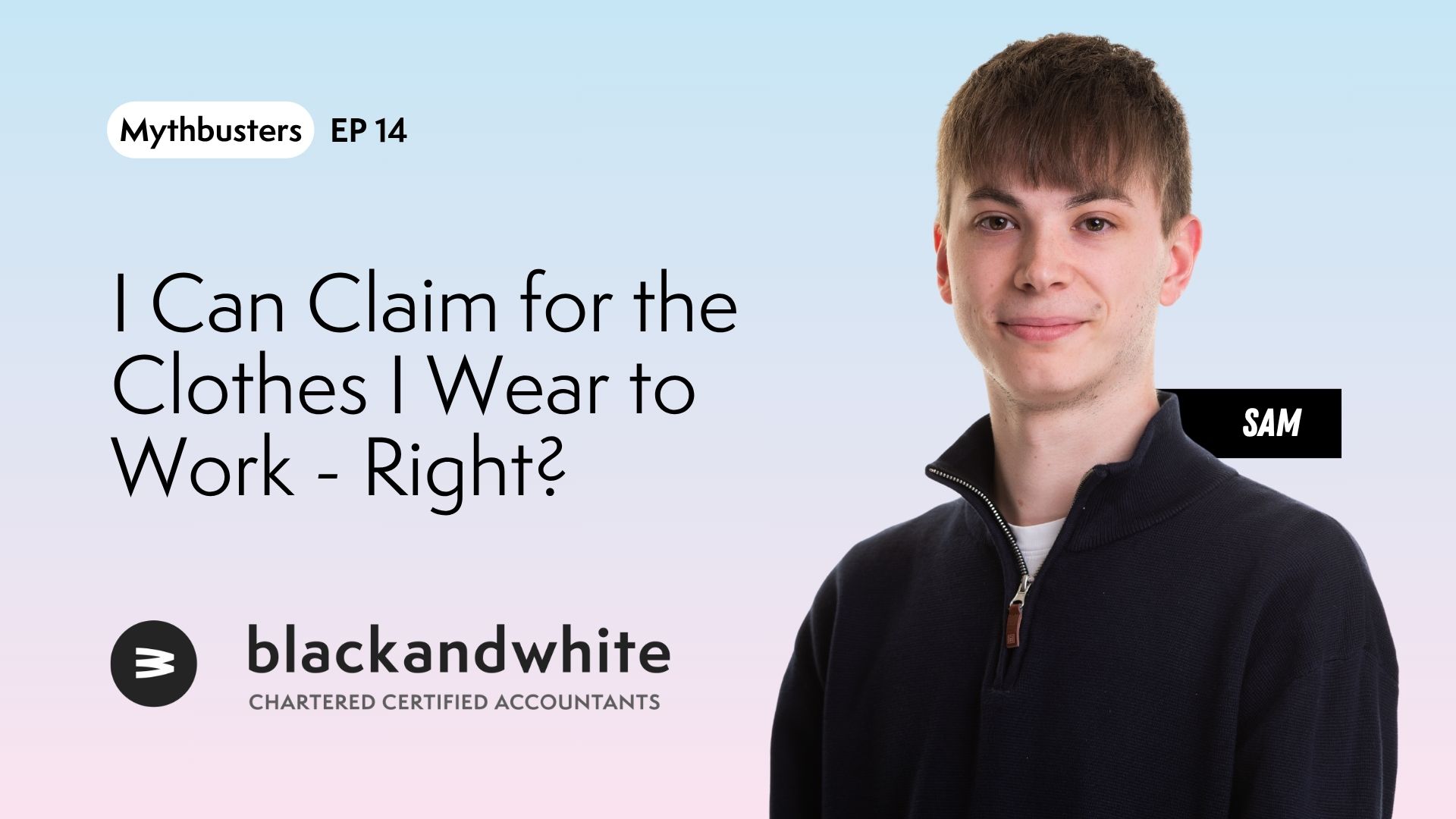Welcome to another edition of our Mythbusters blog series, where we separate financial fact from fiction to help businesses make smarter financial decisions. At Black & White Accounting, we know that tax rules can be confusing, and making incorrect claims can cost you dearly.
Today, we’re tackling a common misconception: “Clothing is always a business expense.” Many business owners assume that because they wear certain clothes for work, the cost must be tax-deductible. But HMRC has strict rules on what qualifies as a business expense—so let’s break it down!
The Myth: Any Clothing Worn for Work Can Be Claimed as a Business Expense
It’s easy to see why people think this. If you’re dressing professionally to meet clients, representing your brand in public, or wearing something that you wouldn’t normally buy outside of work, surely it counts as a business expense, right?
Wrong. HMRC does not allow tax relief on clothing expenses simply because they’re worn for work.
The Reality: Most Everyday Clothing is NOT Deductible
HMRC’s general rule is that clothing expenses can only be claimed if the clothing is wholly, exclusively, and necessarily for business use—and this is where most claims fall short.
What You Can’t Claim:
The following types of clothing are not tax-deductible, even if you wear them exclusively for work:
- Suits and Professional Attire – Even if you only wear your suit or smart dress for business meetings, HMRC considers this a personal expense because you could, in theory, wear it outside of work.
- Branded Designer Clothing – Wearing high-end fashion or branded outfits to promote a luxury business? Unfortunately, that doesn’t qualify either.
- Casual Workwear – Jeans, shirts, or dresses that you wear to work—even if you only wear them for work—are still not considered a necessary business expense.
What You Can Claim: The Exceptions
While everyday work clothing isn’t deductible, there are a few key exceptions where HMRC does allow tax relief:
1. Uniforms & Branded Workwear
If your clothing is a recognisable uniform (e.g., a branded polo shirt with your company’s logo or a high-visibility vest required for your job), then it qualifies as a business expense.
2. Protective Clothing & Safety Gear
If your job requires safety gear—such as steel-toe boots, helmets, gloves, or high-visibility jackets—these are tax-deductible because they are necessary to perform your job safely.
3. Costumes for Performers
If you work in entertainment—such as an actor, dancer, or magician—you may be able to claim for costumes, provided they are solely for performance use and not everyday wear.
4. Specialist Workwear
If you require specific clothing for a trade—such as a chef’s whites, a lab coat, or scrubs for medical professionals—this is considered a necessary business expense.
The Cost of Getting It Wrong
If you claim non-deductible clothing expenses, you could face an HMRC inquiry, be required to pay back the tax relief, and even face penalties for incorrect tax filings.
The Smart Approach: Get Expert Advice
Understanding what you can and can’t claim is key to avoiding mistakes and maximising legitimate tax deductions. At Black & White Accounting, we help businesses stay compliant while making the most of every tax-saving opportunity.
Not sure if your expenses qualify? Get in touch with our team today!
Stay tuned for more Mythbusters blogs, where we continue to uncover the truth behind common financial misconceptions and help businesses like yours take control of their finances.


